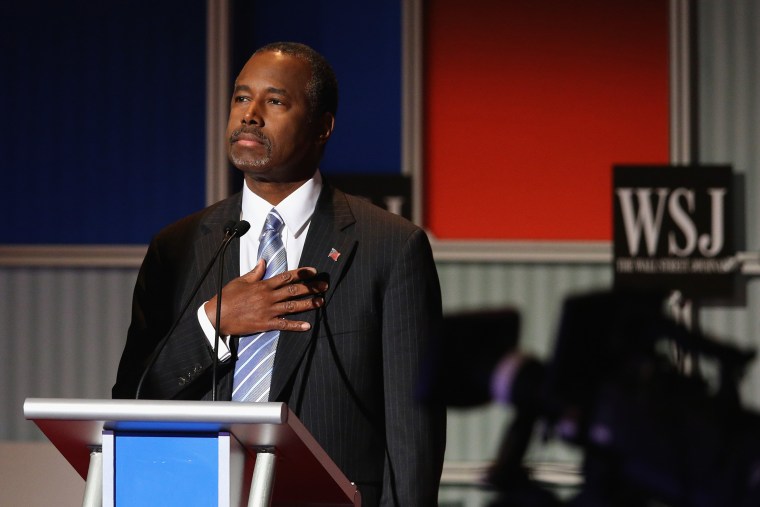"Well, putting the special ops people in there is better than not having them there, because they -- that's why they're called special ops, they're actually able to guide some of the other things that we're doing there. "And what we have to recognize is that Putin is trying to really spread his influence throughout the Middle East. This is going to be his base. And we have to oppose him there in an effective way. "We also must recognize that it's a very complex place. You know, the Chinese are there, as well as the Russians, and you have all kinds of factions there. "What we've been doing so far is very ineffective, but we can't give up ground right there. But we have to look at this on a much more global scale. We're talking about global jihadists. And their desire is to destroy us and to destroy our way of life. So we have to be saying, how do we make them look like losers? Because that's the way that they're able to gather a lot of influence."
Ben Carson's unawareness keeps catching up with him
Isn't it at least possible that no matter how awful Carson's debates answers are, they have no real bearing on his candidacy?

About half-way through last night's debate for the Republican presidential candidates, Ben Carson was asked about President Obama's decision to deploy a limited number of U.S. troops to Syria, while keeping 10,000 Americans in Afghanistan. For a split second, I thought to myself, "Wait, that's not a fair question. Carson couldn't possibly be expected to have a coherent opinion on the subject."
But the second quickly faded and I remembered that Carson is a presidential candidate. He's supposed to be able to speak intelligently about this and a wide range of other issues.
And in this case, Carson seemed lost, leading to a lengthy, meandering response that can charitably be described as word salad.
Carson went on (and on) from there, blissfully unaware of the fact that the Chinese have not, in fact, deployed troops to Syria, and making terrorists "look like losers" isn't quite as straightforward as he'd like to believe.
At the end of his bizarre answer, the audience clapped, though it wasn't clear to me if attendees were just being polite to a confused candidate who seemed wholly out of his depth.
What's more, it wasn't just foreign policy.
Asked about the need for possibly breaking up the big banks, Carson offered a 346-word answer that emphasized his belief that regulations have added 10 cents to the cost of a bar of soap, which "hurts the poor," and which is something "Bernie Sanders and Hillary Clinton won't tell you."
Um, OK?
As alarming as it was to see a leading presidential candidate seem genuinely lost on practically every subject, I keep returning to the thesis we kicked around last month: the question of whether or not Carson is debate-proof.
The retired right-wing neurosurgeon didn't make much sense last night, but his first three debate performances were about as compelling, which is to say, he was frighteningly confused, but no more so than usual.
And yet, in the wake of those previous events, Carson's popularity among Republican voters and standing in GOP polls steadily improved.
Isn't it at least possible that no matter how awful Carson's debates answers are, they have no real bearing on his candidacy? And if so, what does that tell us about the state of the Republican electorate?